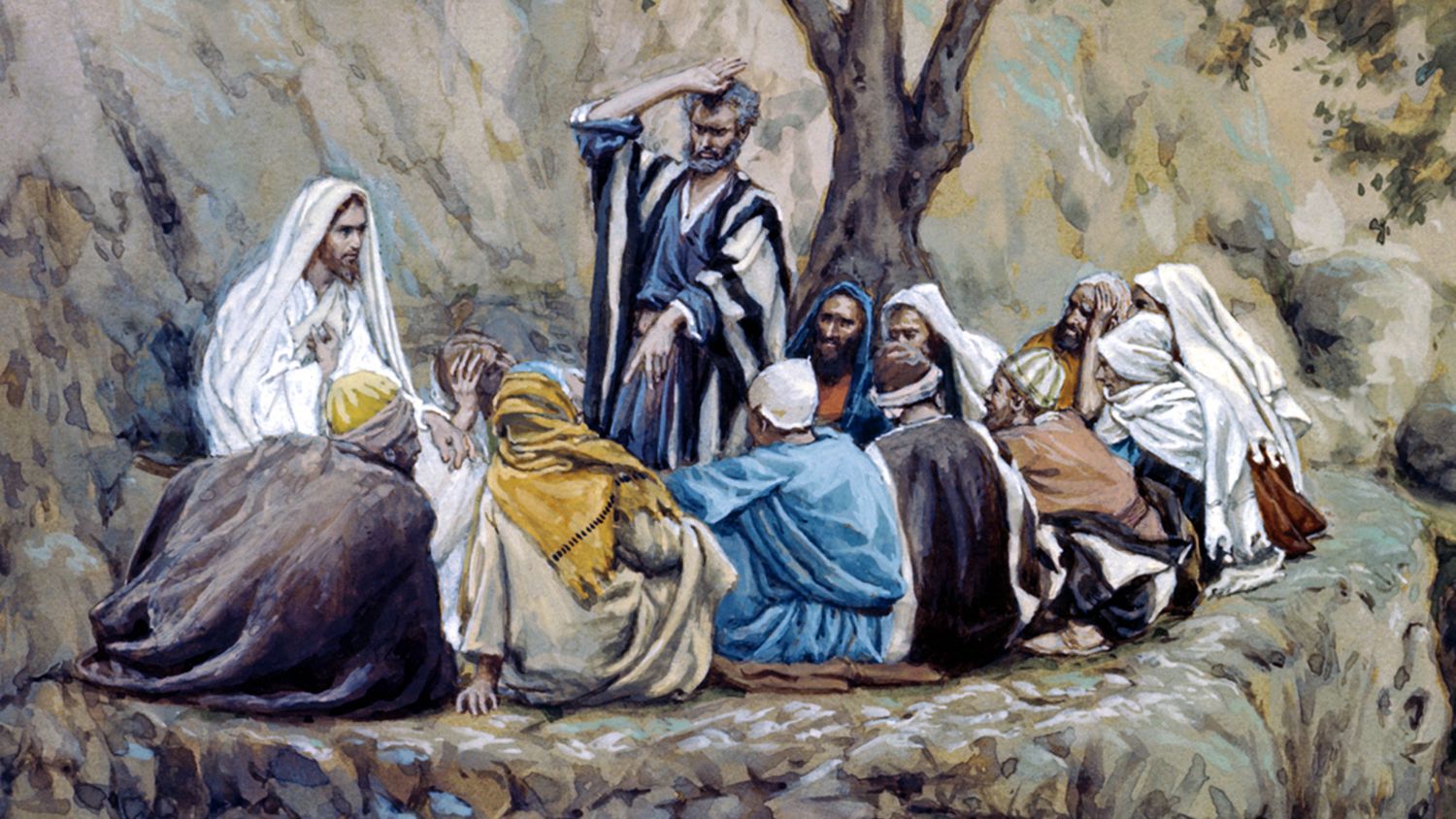Lesson 15: Community Beyond Family
 It is obvious one difference between Jesus’ community and the modern Church has to do with his band treating its members with the intimacy usually associated with the biological family. They shared their money and loved unconditionally as would be expected in most families.
It is obvious one difference between Jesus’ community and the modern Church has to do with his band treating its members with the intimacy usually associated with the biological family. They shared their money and loved unconditionally as would be expected in most families.
As soon as we recognize this, many of Jesus’ tough sayings are more easily understood. What seems to be a curt refusal to meet with his family becomes an explanation of the caring community being expanded to those doing God’s will. What seems a harsh statement about loving him more than father and mother and even hating parents becomes an attempt to overcome the resistance to limit care to biological family. What seems to be a 12-year old’s disrespectful treatment of his mother becomes simply an attempt to teach Jesus’ relationship with God the Father. Even what seems a humorous remark about no marriage in heaven is a more serious teaching of what life in the kingdom is like. Since all love naturally there is no need for marriage promises to protect the vulnerable.
Understanding Jesus’ group this way suggests answers to other questions that arise. Every time I have done Bible studies recently about Jesus calling his disciples who left everything to follow him, someone has wondered about abandoning their responsibilities for their families. This has sometimes led to questions about why Jesus never married and cared for a family. One response would be recognition that God desires the love we naturally feel for family to be shared in the larger community.
In fact, if you consider the practice of the early church in Jerusalem described in the opening chapters of Acts, you could easily read Jesus’ command to sell all you have and give it to the poor before following him as referring to the community sharing all their resources. It is not so much giving away what you need to care for your family as sharing these with other families.
In light of this, I could imagine Jesus making some comments like people of old said to share your money and love your family unconditionally, but I say, do the same to the whole community.
I think we can think of all sorts of reasons why the church could not continue this kind of community. The story itself acknowledges this when it includes Judas’ betrayal, Peter’s denial, and the whole bunch’s abandonment.
The problem that confounds me is why the modern church does not at least point to these marks as ideals. Even more, how can so many Christians promote just the opposite? I am continually reading of churches equating Christianity with family values that they define as ways the nuclear family should operate. While it is true we have a lot to say about the failures of the nuclear family these days, our basic proclamation has to do with loving all others as ourselves. But even more distressing, these churches that appear to be moving in the wrong direction also include promoting larger defense budgets and family values. For that matter, to speak of sharing money with each other in just about any church incites the charge of being a communist.
Perhaps a decent way to begin correcting this is to discuss between ourselves what values we really practice in our families. It would soon be evident that we make sure all have enough. Those who have, share with those who do not. We also love all members unconditionally. We readily forgive rather than respond with violence. Once we stop to recognize this, we can begin asking how we can expand this lifestyle to others in the church community.

 Frontline Study is an online discussion of the scriptures, inviting you to share your comments and your reflections on each weekly topic. Simply click on the "Add Reply" text at the top of each post to see what others have posted and to add your thoughts.
Frontline Study is an online discussion of the scriptures, inviting you to share your comments and your reflections on each weekly topic. Simply click on the "Add Reply" text at the top of each post to see what others have posted and to add your thoughts.